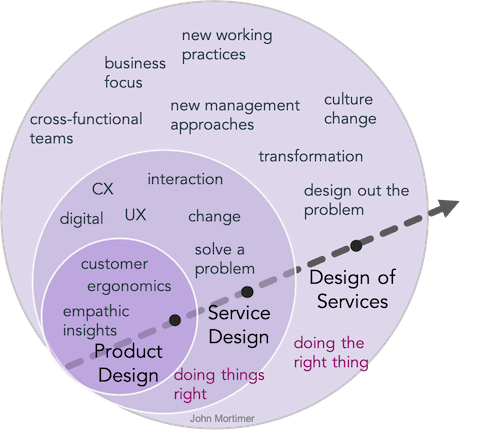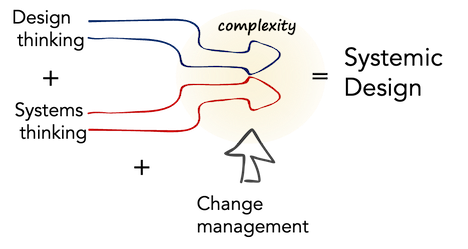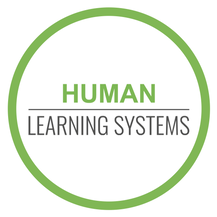Going deeper into the systemic design of services; complexity & systems thinking workshop course
Service organisations are shifting from simple transactional design, towards more complex and human centred services - both in the private & public sector. Systemic design moves us into new ways of working using systems thinking, beyond the boundaries of our existing approaches. This is a practice based workshop looking at bringing commercial sense and business acumen to design and change.
Workshop objectives
- Learn how to apply some basic business sense and acumen to your design and change approach.
- Develop new ways of understanding citizens/ customers, that will capture strength based wider needs than you do now.
- To recognise complex 'wicked' characteristics and how to incorporate them into change.
- Understand true human centred design, in contrast to product or process change.
- Incorporate systems thinking, complexity and systemic design concepts and tools.
- Revisit traditional change methods, and evolve them to a new level.
- Revisit intervention methods like the double diamond, and expand it to the triple diamond.
- Apply new ways of workplace behaviours to your work.
- Successfully influence and integrate change into an organisation.
- Develop co-design with the liberated method to engage in change and participatory leadership.
- Develop your self-awareness as a change agent, and how that relates to others to maximise your impact.
"'Tremendous value, lots of grounding, loved the examples… Every expectation fulfilled."
"This is a very new way of looking at things..."
This is different because it is not about simply adding methods to what you already do. This answers the question as to what happens when we apply a systemic set of principles to the methods we currently use, in a business environment. We will take business understanding so you are more comfortable to navigate some conversations with senior stakeholders and achieve the impact you are striving for. So that we can become embedded in business decision making, rather than simply trying to be noticed.
Leaving behind jargon that is prevalent in systems literature, we will be focusing on robust practice and case studies that I and others have personally undertaken over 22 years. We will explore design, change, & digital, and we will expand them with powerful and practical concepts and methods.
The workshop is designed to look at how you can position yourself in an organisation to co-create change with decision-makers and staff, to develop new ways of working, that you can then take forward in your journey of developing yourself.
Ideally, you perhaps are;
Leaving behind jargon that is prevalent in systems literature, we will be focusing on robust practice and case studies that I and others have personally undertaken over 22 years. We will explore design, change, & digital, and we will expand them with powerful and practical concepts and methods.
The workshop is designed to look at how you can position yourself in an organisation to co-create change with decision-makers and staff, to develop new ways of working, that you can then take forward in your journey of developing yourself.
Ideally, you perhaps are;
- You are an experienced designer, or you may be leading other designers.
- You have an internal change OD role, wishing to learn wider systemic techniques.
- You are operational, and want to learn more about cutting edge ways of working.
- You may be a manager or owner of a service, wishing to delve closer to the re-design of services and better ways to lead your teams.
|
Are you in the NHS, an ICS or social care health services? If you are, this workshop has an element of health as a module!
|
Moving from concepts, to creating impactful change
We are pretty good at transforming services like online shopping, and improving processes. Costs have been slashed, and the user experience has got lots better. But what happens when we delve into services that are not quite so transactional.
Today we recognise that service design or change in organisations, as a practice, is becoming less about delivering products and project management, and more about impacting the whole end to end service; together with integrating this into how the business really works and is managed. This workshop is about incorporating proven progressive systemic design and change concepts and methods that deal with the characteristics of people rather than products. It is designed to deepen and strengthen our skills to enable us to become more effective.
This is especially the case in the public sector, as we begin to tackle complexity in services like adult social care and homelessness. In particular Human Learning Systems, systems thinking methods, and the liberated method.
- Those services that have elements of complexity,
- Services that are more about people than product,
- How can we overcome resistance to change,
- What about transforming the whole service?
Today we recognise that service design or change in organisations, as a practice, is becoming less about delivering products and project management, and more about impacting the whole end to end service; together with integrating this into how the business really works and is managed. This workshop is about incorporating proven progressive systemic design and change concepts and methods that deal with the characteristics of people rather than products. It is designed to deepen and strengthen our skills to enable us to become more effective.
This is especially the case in the public sector, as we begin to tackle complexity in services like adult social care and homelessness. In particular Human Learning Systems, systems thinking methods, and the liberated method.
"A big game changer…"
Why is this workshop different?
You can already do a course on systems thinking, or read a book about complexity, but they are often heavily theoretical, or they are very general. Or you might learn about lots of different systemic tools. Either approach may leave you with more questions than answers.
What is different in this workshop, is that we will use successful real examples of change & triple diamond systemic design, both from the public and private sector. We will link new systemic change principles with new techniques; some that you can use immediately, and others that will give you pointers for further and deeper collaboration with change experts outside of your change discipline. We will focus on the principles of business and decision-making, and rather than trying to 'influence them' we will explore how to become a part of that.
The hard work of sifting through theories, books and blogs has been done for you!
This is an interactive course that adapts to your own challenges that you might bring to the workshop. We will explore together how we might overcome them using our new found knowledge.
What is different in this workshop, is that we will use successful real examples of change & triple diamond systemic design, both from the public and private sector. We will link new systemic change principles with new techniques; some that you can use immediately, and others that will give you pointers for further and deeper collaboration with change experts outside of your change discipline. We will focus on the principles of business and decision-making, and rather than trying to 'influence them' we will explore how to become a part of that.
The hard work of sifting through theories, books and blogs has been done for you!
This is an interactive course that adapts to your own challenges that you might bring to the workshop. We will explore together how we might overcome them using our new found knowledge.
|
|
Systemic design to deal with change with complexity
Perhaps the most impactive activity we can do when helping an organisation, is to first study the demands that come into their service, using the concept of Value and Failure demand.
We will start with the customer or person, and learn new systemic ways of understanding how customer needs can be understood and designed, moving further beyond user research and data to strength based, what matters to people. That will then lead us into the service operational workflow, and the main aspects of delivery that impacts on what matters to customers. We are going to delve into the fuzzy elements of sense-making beyond data, and tackle how complex information is best collated, stored and used.
We will shift our focus on being a discipline within an organisation, to knowing how to develop successful services. Working in partnership with decision-makers to embrace and lead change together.
Rather than understanding an organisation as a machine metaphor, and delivery as a series of events, complexity is central to how organisations and people work. We will delve into how complexity affects design of our services, and how we and managers make decisions. How to empower staff by applying principles of 'the liberated method', from the constraints and barriers around them.
You will learn how to observe the whole service as a Complex Adaptive System, so that we can succeed with change and dissolve resistance to change. And we will look at how to engage managers and leaders so that, together with staff, we co-create the design with decision-makers participating.
We will shift our focus on being a discipline within an organisation, to knowing how to develop successful services. Working in partnership with decision-makers to embrace and lead change together.
Rather than understanding an organisation as a machine metaphor, and delivery as a series of events, complexity is central to how organisations and people work. We will delve into how complexity affects design of our services, and how we and managers make decisions. How to empower staff by applying principles of 'the liberated method', from the constraints and barriers around them.
You will learn how to observe the whole service as a Complex Adaptive System, so that we can succeed with change and dissolve resistance to change. And we will look at how to engage managers and leaders so that, together with staff, we co-create the design with decision-makers participating.
"This is opening up my role; how it could be..."
GDS, Human Learning Systems, & 'the liberated method'The design of our complex services is now demanding that we move into the realm of more complex people centred design. Co-design and collaborative approaches are being experimented with, that moves services to cover far more than the standard pathways and referrals.
This is about strengths based approaches, and we will look at examples like Vanguard and 'The Liberated Method.' This approach we will be examining is aligned with Human Learning Systems HLS; a collection of proven case studies and a methodology put together by a group of us including Prof. Toby Lowe. |
Co-creation, engaging managers and stakeholders
There is much talk about person-centered, systems convening, and systemic design, but the outcomes are often less than robust. We will understand how you can better engage with, and collaborate better, with others in your organisation. Widening your scope - using their language and understanding how to co-design a service from end to end, and from the bottom up.
Workshop detail
- Align change and design with business sense and business execution.
- Identify different types of change & design, and how to apply those.
- Starting with sense-making as a far more powerful way of understanding the person, using Value & Failure demand.
- Uncovering true person-centred design through the triple diamond framework.
- Begin to develop and practice systemic design, the liberated method, Vanguard, HLS, and systems convening.
- Bringing stakeholders together with a common purpose, real integrated working.
- How to recognise and navigate both digital and change.
- Co-creation; making it work through participatory leadership.
- Cutting through the trendy terminology and focus on practice.
- Complexity, and how its understanding liberates us to new methods.
- Systemic graphic facilitation; communicating complexity.
- Big pictures and narrative story-telling.
- Fuzzy and messy data, what to do with it.
- From analysis, to synthesis - understanding 'the system.'
- Wicked and systemic problem solving.
- Reframe problems to deepen our redesign work.
- Define and measure success.
Course design
Module 1 - The core of systemic design and complexity, discussing the implications for the design methods we use today. We will go through some concepts using a case study, where we will hear from those involved in the case study, and relate that to the concepts. Day 1.
Module 2 - Working on what we have learned, to delve into the reality of co-design, and the triple diamond methodology of design in complex environments. We will link into deeper aspects of systems, design thinking & systems convening, where you will participate by bringing your previous experience to the group to discuss ways forward. Day 2
Module 3 - This is where we we will stand back and complete the synthesis between systems, change and complexity. And we will bring the elements we have discussed together, so that you can relate this to your specific work. This module benefits from using the experiences of those in the group to boost our sense-making from the interactions between us. Day 3
It is possible to modify the content to suit particular organisation needs. Please contact me for alternative client designs for this workshop.
Module 2 - Working on what we have learned, to delve into the reality of co-design, and the triple diamond methodology of design in complex environments. We will link into deeper aspects of systems, design thinking & systems convening, where you will participate by bringing your previous experience to the group to discuss ways forward. Day 2
Module 3 - This is where we we will stand back and complete the synthesis between systems, change and complexity. And we will bring the elements we have discussed together, so that you can relate this to your specific work. This module benefits from using the experiences of those in the group to boost our sense-making from the interactions between us. Day 3
It is possible to modify the content to suit particular organisation needs. Please contact me for alternative client designs for this workshop.
Pre-requisites & preparation
After booking, you will receive invitation details, and be asked about the issues you face at work that you hope to work on in this workshop.
You will already have real world design or change experience to gain maximum benefit from the workshop. And you must be expecting to expand your view of change & design that you currently hold, that will challenge some of your currently held assumptions. If you're not prepared to absorb new concepts, internalise them, and move them forward yourself, this workshop is perhaps not for you.
For further reflection, a one to one follow up session is also offered after this course.
Your level of English will be good, and you will need to have access to a good screen and audio/ visual.
You will already have real world design or change experience to gain maximum benefit from the workshop. And you must be expecting to expand your view of change & design that you currently hold, that will challenge some of your currently held assumptions. If you're not prepared to absorb new concepts, internalise them, and move them forward yourself, this workshop is perhaps not for you.
For further reflection, a one to one follow up session is also offered after this course.
Your level of English will be good, and you will need to have access to a good screen and audio/ visual.
About John Mortimer
I originally started in engineering, design and managing operational departments, quickly realising that the ability to make a difference lay beyond the technology or in any specialism itself. I have worked in software, operations, engineering, robotics, and finally business consulting. I have an MBA that corresponds to a business background.
Over 45 direct interventions in change and transformation, learned from OD and systemic change consultancies and experts in their field with Vanguard. I became fascinated and enthused by alternative approaches to change, re-inventing work, and managing organisations.
I am now returning back the experience and knowledge gained, both from the mistakes, and the successful outcomes that have been achieved across a myriad of services. Incorporating learning has been borrowed by ‘standing on the shoulders of giants’.
Over 45 direct interventions in change and transformation, learned from OD and systemic change consultancies and experts in their field with Vanguard. I became fascinated and enthused by alternative approaches to change, re-inventing work, and managing organisations.
I am now returning back the experience and knowledge gained, both from the mistakes, and the successful outcomes that have been achieved across a myriad of services. Incorporating learning has been borrowed by ‘standing on the shoulders of giants’.








